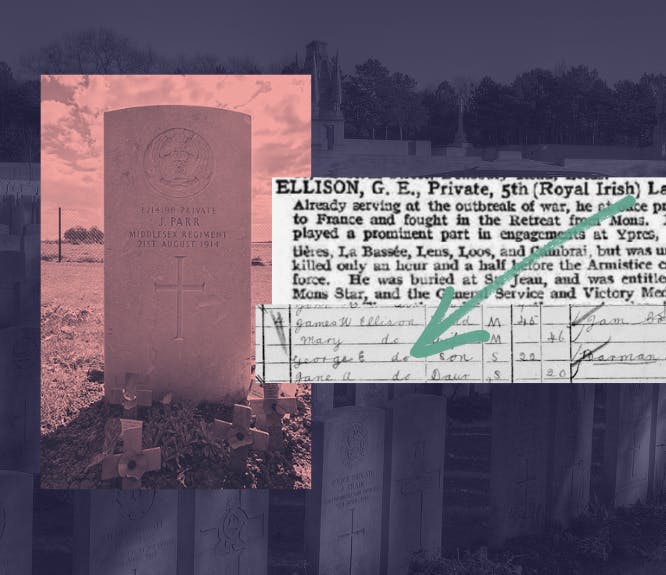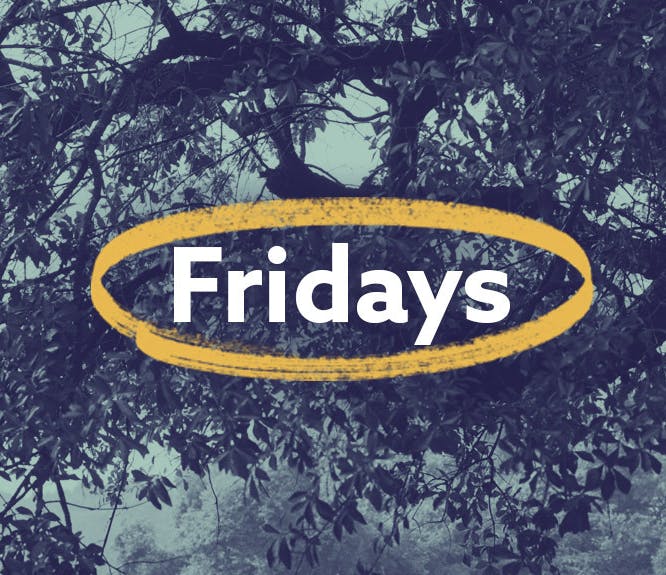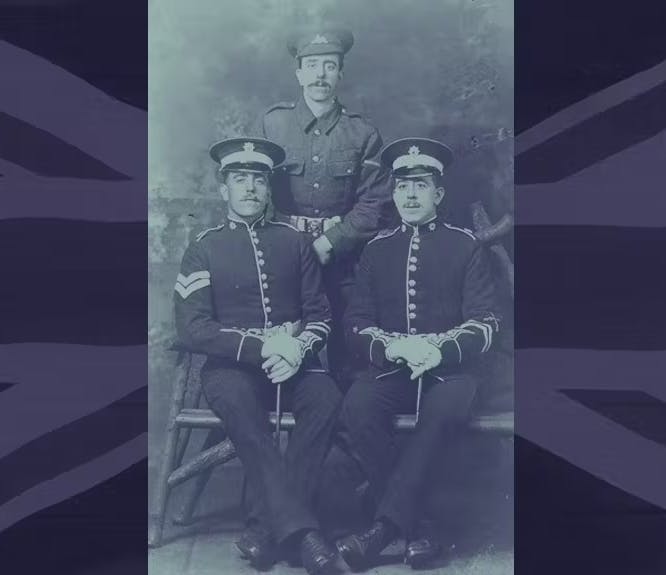Researching this WW1 grave helped honour a forgotten hero and reunite a family from across the world
5-6 minute read
By Ellie Ayton | May 3, 2024

A grave left forgotten for a century. A public appeal to trace his family. A First World War hero finally honoured and remembered.
When historians discovered the forgotten grave of World War 1 serviceman Harry Dunn in 2004, they had no idea who he was. They had no clue about his life, military service, or family. Was there even anyone still alive to remember him?
Then in 2023, our friends at the Commonwealth War Graves Commission created a new headstone for Harry, who is buried in the Arnos Vale war cemetery in Bristol. They appealed to the public for help, searching for long lost family connections, so Harry would have relatives at the ceremony to rededicate his grave.

The new gravestone for Harry Dunn in Arnos Vale Cemetery, Bristol.
Our in-house researcher Jen Baldwin likes a challenge. So, Jen delved into Harry Dunn’s family tree to see if she could help give Harry the rededication service he deserves. And we were amazed by what she found.
Who was Harry Dunn?
By searching for Harry’s war records, Jen discovered that he enlisted in the British Army in 1915 in the 240th South Midland Brigade of the Royal Field Artillery. He served in France on the Western Front during the Great War, which was fought between 1914 and 1918.

A brief overview of Harry’s military service from his service record. You can explore the full record here.
He worked as a driver, meaning he was responsible for driving horses that moved heavy artillery guns and wagons around the battlefield. It’s likely he participated in the Battle of the Somme in 1916 and the Third Battle of Ypres.

Harry’s identity certificate in his service records. You can explore the full record here.
At the end of 1917 he was transferred to Italy where he remained until early 1919.

Harry’s signature from his service record, a small sample of a hero’s handwriting.
Henry Dunn was born in 1892, the son of William Dunn and Florence Dunn née Keepin. His siblings were William, Alice, and Florence Bessie. Tragically his father died, leaving Florence to raise her family alone. She died from dropsy in 1909, leaving the four Dunn children as orphans.

Harry in the 1901 Census as the adopted son of his maternal grandmother, Caroline Keepin.
Following his mother’s death, Harry went to live with his uncle Albert Keepin in Brislington. Albert is named on Harry’s service record as his next of kin.

Harry in the household of his uncle Albert in the 1911 Census.
William and Alice were taken in by Barnardo’s – in 1909 and 1910, they were sent to Canada as part of what is now known as the Home Children programme. William was placed on a farm near Kingston, and Alice was sent to Toronto.
William’s grandson George Dunn recalls:
"I remember them talking about [coming across on the ship], how he lived on a farm in Sydendam at 10 or 11 years old, and slept in the barn. He wasn’t treated all that well as a child coming from England. He was just given scraps and wasn’t dressed properly."
Bessie, on the other hand, was sent to live with another Keepin uncle.
Find your ancestor's military records
Now alerted to the family connection, the family in Canada have been unearthing photos and letters, including correspondence written by Bessie to her estranged siblings. One describes how she wanted to visit them but could not afford the passage.
What happened to Harry after World War One?
Following the Armistice, Harry returned home to Bristol in 1919 from Italy. But tragically, he died of pneumonia just a month later – just days before he was due to be discharged. As he was still in service upon his death in 1919, he was eligible for a CWGC headstone as a WW1 casualty.

Harry’s probate record, which shows he left his effects to his sister Alice.
The appeal for Harry’s relatives reached Mr Andrew Keepin of Cwmbran. He and his father Reg are Harry’s cousins once and twice removed.

Harry’s relatives Reg and Andrew Keepin at the new grave.
"Three months ago we had no idea of Harry or his siblings. We only knew of a Florence Keepin (Harry’s mother), one of 15 children. Now we have Harry’s full history, the battles he fought in across Europe, what happened to his siblings when his mother and father died, a full back story."
It was researching the family of Harry’s mother, Florence, using her maiden surname of Keepin, that helped Jen make this connection.
When Harry died, his medals were sent to William in Canada. George also recalls his grandfather speaking about them.

Harry’s service record confirms that his medals were sent to William in Canada.
Jen's research and that of others meant that Harry’s relatives from Bristol and South Wales were able to attend the rededication service. The research also found relatives in Canada, and they hope to pay their respects in person soon. Jen says:
"When you contribute to a collaborative effort like this, you are reminded just how impactful family history can be. Telling Harry’s story brings peace to his family, and, I hope, inspiration to others that we can absolutely put the fragments of history back together. The key here was identifying Harry’s mother and using her maiden name to trace his family and life experiences. His family truly showcases the need to explore all avenues available to us and to ensure that her story is told as thoroughly as his."
Thanks to the combined effort spearheaded by the Commonwealth War Graves Commission, threads of Harry’s family have been reunited over a century after his death.
It's not known exactly where in the cemetery Harry is buried, but having Harry’s properly acknowledged is enough for his relatives.
Frequently asked questions
How do I find a First World War grave?
You can search the Commonwealth War Graves Commission Debt of Honour records, which will tell you where your relative is buried or commemorated. You may also learn their next of kin, their rank and regiment, and their date of death. There is also more detail available on the CWGC website.
Where can I find WW1 military records?
You can search for your ancestor’s military service records on Findmypast to explore their wartime service. You can also find out more at The National Archives.
Where can I find WW2 military records?
You'll find some World War Two military records on Findmypast here, but if you want your ancestor's full service record you can order that for a fee from the Ministry of Defence.
Related articles recommended for you

Remember their story: the first and last British soldiers killed in the First World War
History Hub

Discover new records from Leicester to Lincoln
What's New?

Five must-read books to discover more about the British Army during the First World War
History Hub

